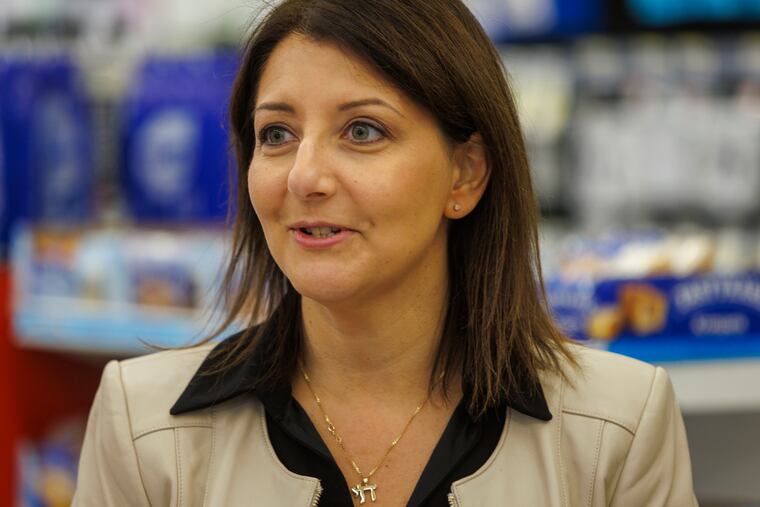CDC director visits Philly to promote COVID-19 and other seasonal vaccines
About 12 million Americans have already received the latest COVID-19 vaccine.

The director of the Centers for Disease Control and Prevention visited a Center City Walgreens on Monday morning to encourage residents to get the latest COVID-19 vaccine ahead of “sick season” — the fall and winter months when respiratory viruses circulate.
Mandy Cohen, an internal medicine physician, took the reins at the CDC in June. She previously headed the North Carolina Department of Health and Human Services, as well as served in health policy roles in the Obama administration.
She visited Philadelphia several weeks after the vaccine was officially rolled out — and some residents here had reported difficulties getting their shots because of shipping issues, and challenges getting them covered by insurance. Those issues have been largely rectified, she said.
About 12 million Americans have already received the latest COVID-19 vaccine, Cohen told The Inquirer, noting that it’s difficult to compare the initial uptake to previous COVID boosters, because many people received those immunizations on different schedules, depending on when they’d first been vaccinated. But the CDC is pleased with the pace of new vaccinations so far.
“We’re about on track, but we have more work to do,” she said. “We have to keep getting the word out. And we want to see as much uptake as possible in people over 65.”
People over that age, or people with medical conditions that put them at a higher risk for serious illness, should get the vaccine as soon as possible, she said. The new vaccines are also important to get because they’ve been tailored to combat the latest strains of the virus now circulating.
“When we get deeper into the fall and the winter, we’re going to do things that spread this virus more — gathering more indoors, traveling for Thanksgiving and Christmas,” she said. “The way that we can keep that all on the mild side and keep people out of the hospital is vaccination.”
No shortage of COVID vaccines despite initial delays
Cohen said some of the delays that had plagued the initial rollout of the new COVID vaccines have been resolved. In Philadelphia, residents had reported that insurance companies would not cover their shots, or that their pharmacies had canceled their vaccine appointments because of low supply.
Last month, city health officials asked residents without health conditions that put them at a higher risk of serious complications from the virus to consider waiting one to two weeks before scheduling an appointment for their vaccine.
“The federal government, this year, is not purchasing or distributing the vaccines. The private sector was doing it this time; it was their first time going through it, and they’ve had a few lessons learned,” Cohen said. “I think we’ve worked through all those issues. There’s plenty of supply. There’s appointments here at Walgreens and CVS.”
She also stressed that immunizations for the flu and respiratory syncytial virus, or RSV, are also available. Last year’s “tripledemic” occurred when RSV and the flu, combined with COVID, fueled a rise in hospitalizations for respiratory illnesses, especially at children’s hospitals. RSV can be particularly serious for young children and older adults.
This year, a new RSV immunization is available for pregnant people and infants for the first time. Cohen urged parents and older adults to ask their doctors about getting immunized.
At the Philadelphia Walgreens on Monday, Cohen spoke with pharmacists as patients trickled in to get vaccinations.
Priya Mammen, senior medical director for Walgreens, said the company is committed to ensuring vaccines are available for local residents, especially for those who do not have insurance. The pharmacy, like others in the city, participates in the Bridge Access program, which provides free COVID-19 vaccines to adults without insurance.
“Everybody needs their vaccines,” she said.